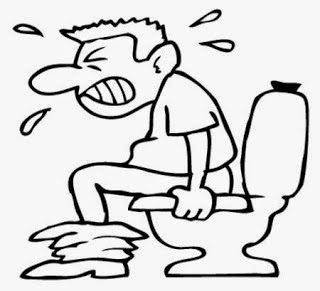6 Factors Affecting Elimination : Urinary and Bowel
There are several factors that affect the elimination of feces and urine. These factors, among others:
1. Age
Age not only affect the elimination of feces and urine, but also affect the elimination of control itself. Children are still not able to control bowel movements or urination due to neuromuscular system is not well developed. The elderly will also experience a change in the elimination. Usually there is a decrease muscle torus, so peristaltic be slow. This causes difficulties in controlling the elimination of feces, so that the elderly are at risk of constipation. Similarly, the elimination of urine, decreased sphincter muscle control resulting in incontinence.
2 Diet
Food is the main factor that affects the elimination of fecal and urine. Fiber foods are necessary for the formation of feces. Low-fiber foods cause a slow movement of the rest of the digestive be reached rectum, thereby increasing water absorption. This results in constipation. Eating regularly is very influential on the regularity of defecation.
Malnutrition became the basis of the decrease in muscle tone, thus reducing the ability of a person to remove feces and urine. In addition, the most important result of the elimination of malnutrition fecal and urine are immune deficiencies against infections that attack the digestive organs and the urinary organs.
3. Fluid
Fluid intake effect on fecal and urinary elimination. When the fluid intake is inadequate or excessive fluid output, then the body will absorb fluid from the colon in large quantities. This causes the stool becomes hard, dry, and difficult to pass through the digestive tract. On the elimination of urine, lack of fluid intake causes blood volume filtered into the kidney to be reduced so that the urine is reduced and more concentrated.
4. Physical exercise
Physical exercise helps a person to maintain muscle tone. Good muscle tone of the muscles of the abdominal, pelvic muscles, and the diaphragm is very important for defecation and micturition. Physical exercise also stimulates the emergence of peristalsis.
5. Psychological stress
Excessive stress will affect faecal and urinary elimination. When a person is experiencing anxiety or fear, sometimes, will experience diarrhea. However, those that cause constipation.
6 Temperature
Elimination influenced by body temperature. A person with a fever will increase evaporation of body fluids due to increased metabolic activity. This causes the body will dehydrate so that its effects could potentially occur constipation and urine be spending a little. In addition, fever can also influence on appetite which occurs anorexia, muscle weakness, and decreased fluid intake.

Komentar
Posting Komentar